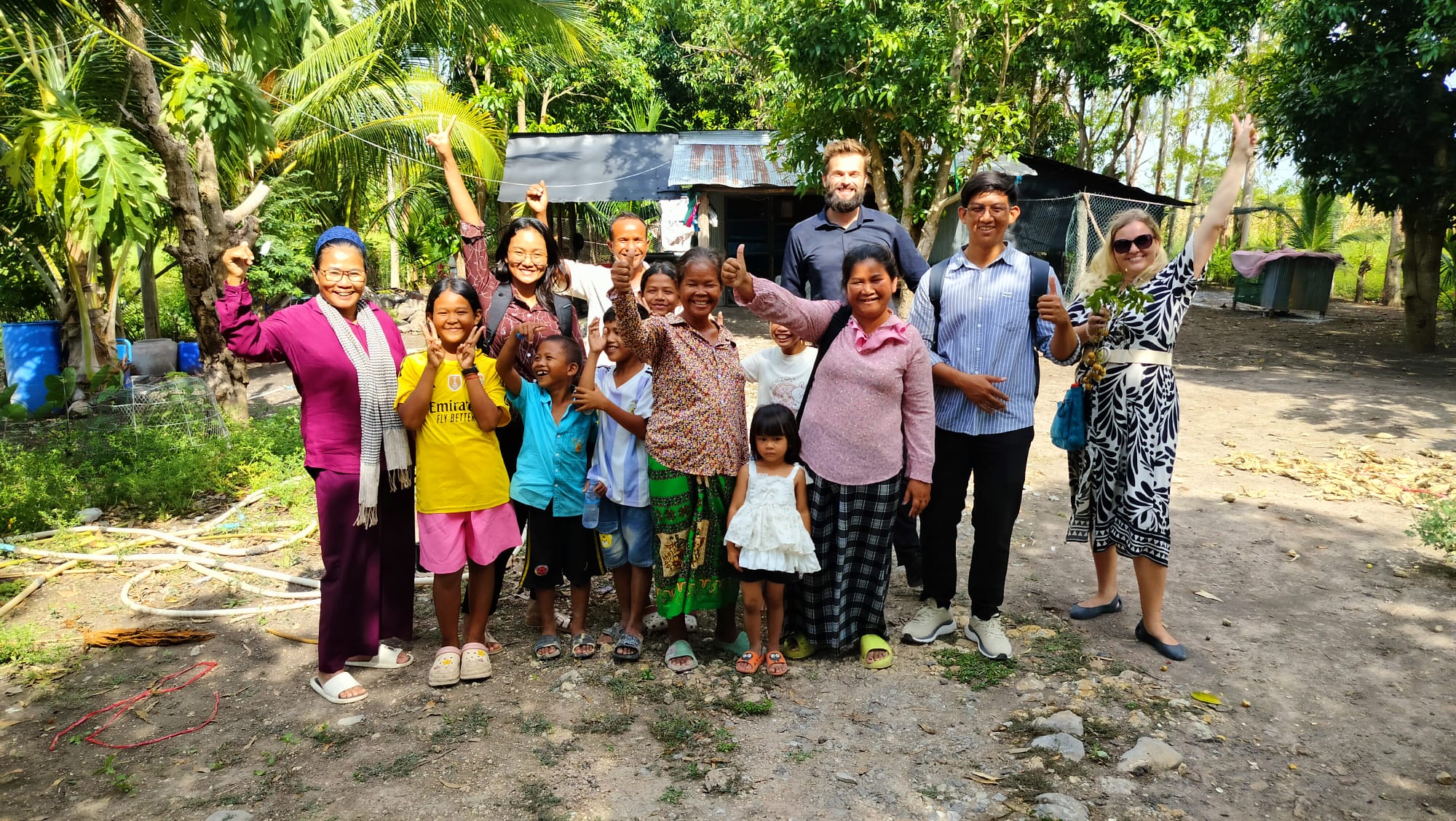Cambodia is a country full of young people, energy and rapid growth. Yet with this development come new challenges: how to keep agriculture competitive, how to increase the added value of local products, how to make use of modern technologies – and all the while ensuring sustainability? These are the very questions addressed by the SmartAgriCambodia project, funded by CzechAid.
One of the first major activities of this three-year project is to map the state of agricultural cooperatives in the Battambang region. Under the guidance of Petra Chaloupková and Jiří Hejkrlík (Faculty of Tropical AgriSciences, Czech University of Life Sciences Prague), PhD students Sreykhouch Ek and Simona Tomanová have designed a questionnaire and are collecting data daily from farmers, cooperative representatives, intermediaries and vendors. It is far from easy work – it requires dozens of hours of interviews, travelling and data analysis – but it provides an accurate picture of how cooperatives function and what they need for further development. The research team also includes Olga Leuner (FTZ) and Václav Novák (Faculty of Engineering, CZU), who contribute their expertise on product processing and the use of modern technologies.
From the official list of 77 cooperatives provided by the provincial Ministry of Agriculture, Forestry and Fisheries, it soon became clear that not all are active. Ultimately, 15 functional and development-oriented cooperatives were identified; these will become the project’s main partners and the focus of future support. Interviews with cooperative leaders also revealed which products hold the greatest potential for joint activities. These are vegetables, rice, mango, poultry and pigs. The team is now conducting detailed value chain analyses for these commodities – from farmers through processors to retailers. To date, more than 36 in-depth interviews have been completed, and data collection is still ongoing. Early results show that farmers would particularly welcome feed production machines for livestock, technologies for briquetting and pelleting of both residues and feed, drones for more efficient cultivation of rice and fruit, and improved irrigation systems for vegetable production.
An especially interesting aspect is the collaboration with the Cambodian start-up Kokopon, which is developing a mobile application for farmer cooperatives. A proposed feature is a reservation system allowing members to borrow equipment supplied to cooperatives within the project. Effective sharing of new technologies among cooperative members would be a major step towards both efficiency and fairness.
Another highlight was the training led by Assoc. Prof. Tatiana Alexiou Ivanova on food waste management. Around 25 lecturers and students from the National University of Battambang took part. In addition to lectures, the programme featured inspiring field visits – to a composting plant and municipal waste sorting facility, a distillery using rice husks as fuel, and a fish processing enterprise. Practical demonstrations of briquetting clearly showed that even seemingly worthless waste can gain new value.
The project is now moving into its next phase: large-scale quantitative data collection directly from farmers and the testing of new technologies, including the briquetting of rice husks. Towards the end of the year, another training session on food processing and packaging is planned, to be delivered by Czech experts Olga Leuner and Petra Chaloupková.
The activities of SmartAgriCambodia show that linking Czech know-how with Cambodian practice holds enormous potential. The work is demanding, but the results are tangible: cooperatives are gaining the tools to become stronger and more self-reliant, waste is being transformed into a resource, and farmers are becoming a driving force of development.


